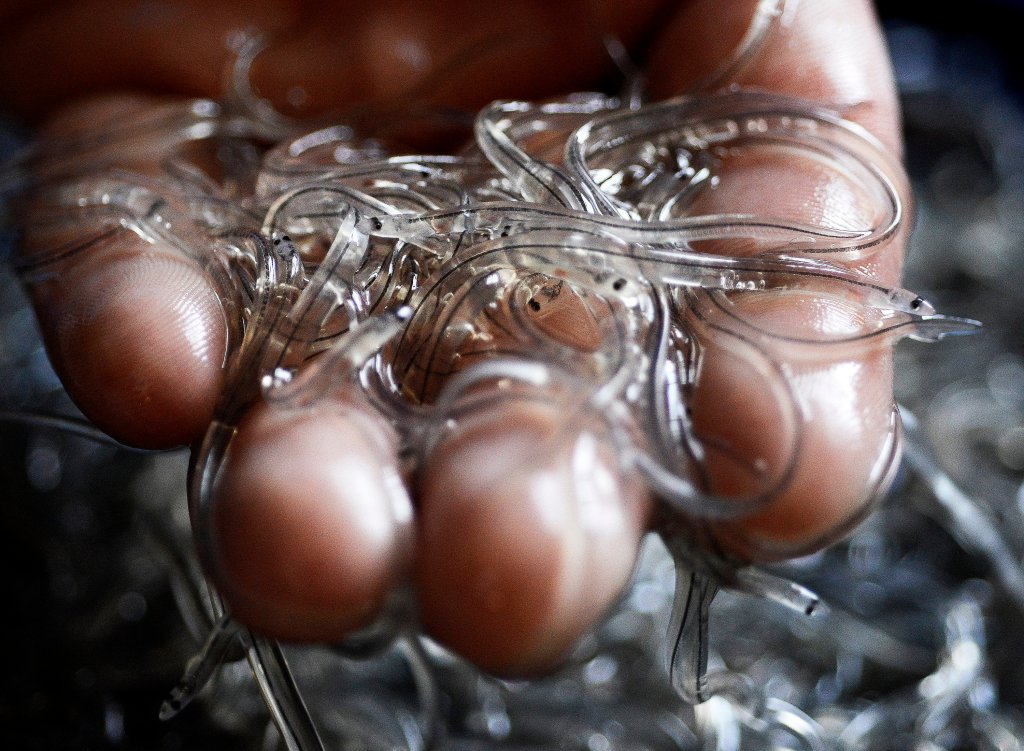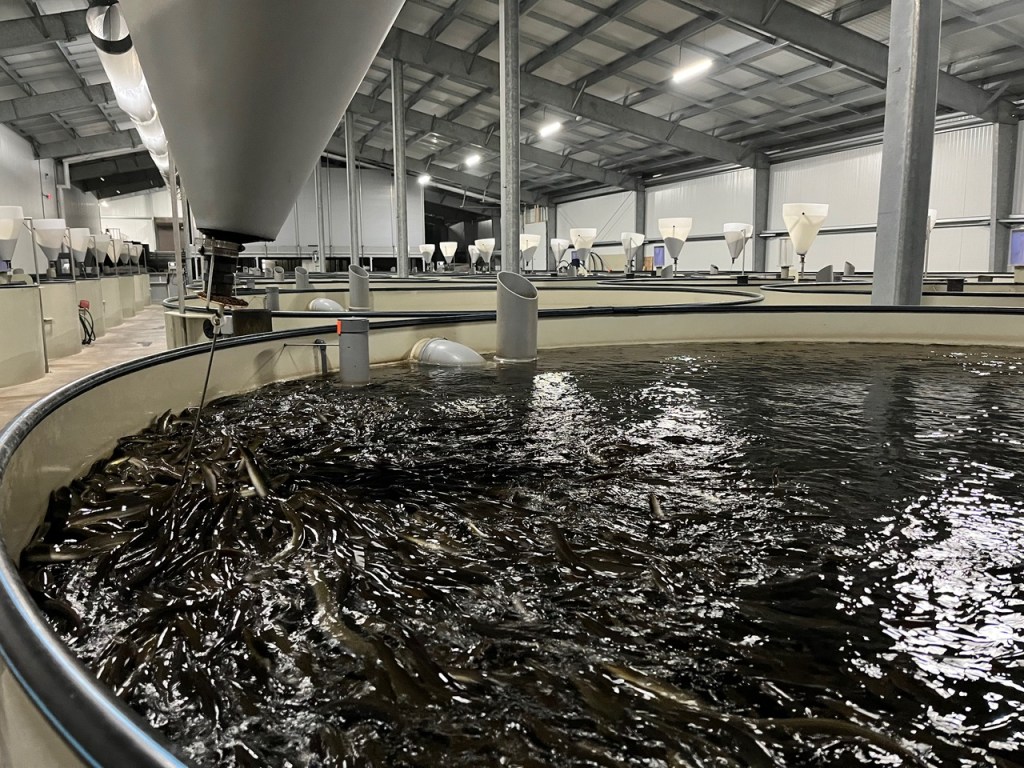
American Unagi, the Waldoboro company that grows baby eels to size and supports a lucrative fishery in Maine, is for sale.
The company will remain in operation as it’s reorganized and sold over the next six weeks, according to documents filed in federal bankruptcy court for the District of Maine.
A supermajority of the company’s shareholders elected in late September to file for Chapter 11 protections under the U.S. Bankruptcy Code, which will allow the company to reorganize while maintaining operations and control of its assets.
The sale is expected to close by Dec. 5.
“The decision to initiate this process comes after careful consideration and is aimed at preserving the value of the business while enabling a smooth transition to new ownership,” the company said in a news release.
Founder and CEO Sara Rademaker declined to answer specific questions about the proceedings, including about what challenges the company faces. American Unagi has secured a half-million dollar loan to fund operations during the reorganization.
A budget filed with the court Oct. 9 shows the company is bringing in $19,350 in normal sales each week but anticipated weekly operating costs throughout October and November of $42,000 on average.

Upon opening in 2014, American Unagi short-circuited the eel industry.
Rather than ship baby eels — or elvers — caught in Maine to Asia, where they were grown to size and processed into food, Rademaker developed a system to grow elvers to size in the U.S. In 2022, the company opened what it says is North America’s first large-scale, land-based commercial eel farm.
American Unagi has a symbiotic relationship with the Passamaquoddy Tribe at Motahkomik, which acquired a 10% stake in the company in 2021 through its business arm, Indian Township Enterprises.
The company provides a stable market for elver fishers, of which there are about 250 on the Passamaquoddy reservation at Motahkomikuk in Washington County. And the tribe is now building a facility to cultivate and process eels into consumable products using a $4.3 million grant from the U.S. Department of Agriculture.
With a per-pound price that typically hovers between $1,000 and $2,000, elvers are often the second most lucrative species commercially fished in Maine. Elver fishers earned $12.2 million last year — down from $19.5 million in 2023. By state law, Passamaquoddy fishers are allocated 14% of the state’s overall quota.
The tribe is not currently interested in acquiring American Unagi, said Stan Meader, president of business operations for Indian Township Enterprises.
But it is intent on moving forward with the construction of the processing facility because the tribe has a guaranteed supply of eels thanks to an existing partnership with American Unagi that will not be affected by the move.
Meader, who also sits on American Unagi’s board of directors, said he expects it to be “business as usual” throughout the reorganization.
“Ultimately, it will be very positive,” he said, noting that the potential bidders he is aware of are “the right people for the business.”
Reuben M. Schafir is a Report for America corps member who writes about Indigenous communities for the Portland Press Herald.

We invite you to add your comments. We encourage a thoughtful exchange of ideas and information on this website. By joining the conversation, you are agreeing to our commenting policy and terms of use. More information is found on our FAQs. You can modify your screen name here.
Comments are managed by our staff during regular business hours Monday through Friday as well as limited hours on Saturday and Sunday. Comments held for moderation outside of those hours may take longer to approve.
Join the Conversation
Please sign into your CentralMaine.com account to participate in conversations below. If you do not have an account, you can register or subscribe. Questions? Please see our FAQs.